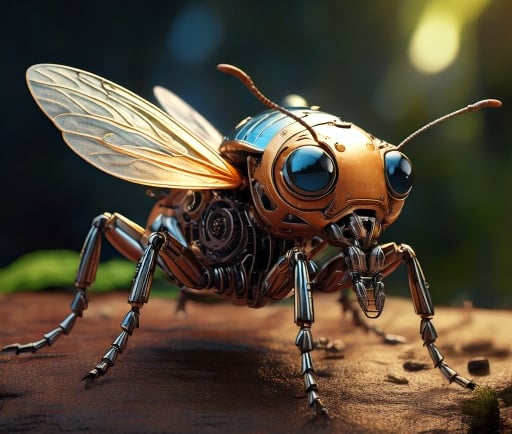Revolutionizing Pollination: The Era of Robotic Insect Drones


The Need for Advanced Pollination Solutions
As the world grapples with the alarming decline in bee populations, the agricultural sector faces an urgent need for innovative pollination solutions. Bees, vital for the pollination of many crops and flowers, are increasingly threatened by factors such as habitat loss, pesticide use, and climate change. To address this challenge, researchers have developed tiny robotic insect drones designed to mimic the natural pollination process, offering a groundbreaking solution to enhance crop yields and maintain biodiversity.
How Robotic Insect Drones Work
These tiny robotic drones, modeled after their biological counterparts, are engineered to perform precise pollination tasks. Swarming out of mechanical hives, these drones can efficiently navigate through rows of crops or gardens, mimicking the movement patterns of bees. Utilizing advanced sensors and algorithms, the robotic insects identify flowers and transfer pollen, significantly improving the efficiency and accuracy of pollination.
Benefits Beyond Pollination
Beyond merely substituting bees in the pollination process, robotic insect drones also offer various benefits to the agricultural industry. Firstly, they can operate in adverse weather conditions where bees may be inactive, ensuring that pollination occurs consistently. Secondly, their ability to cover vast fields quickly increases the likelihood of cross-pollination, which can enhance fruit quality and yield. Furthermore, the integration of these drones supports sustainable farming practices, as they can be programmed to reduce pesticide use and optimize the overall health of the ecosystem.
In conclusion, the introduction of tiny robotic insect drones presents a transformative opportunity to bolster pollination efforts in agriculture. As technology advances, these drones could play a crucial role in ensuring food security and protecting our planet's biodiversity. By simulating the behavior of bees and performing required tasks with precision, robotic drones stand as a beacon of hope in the fight against declining pollinator populations.
